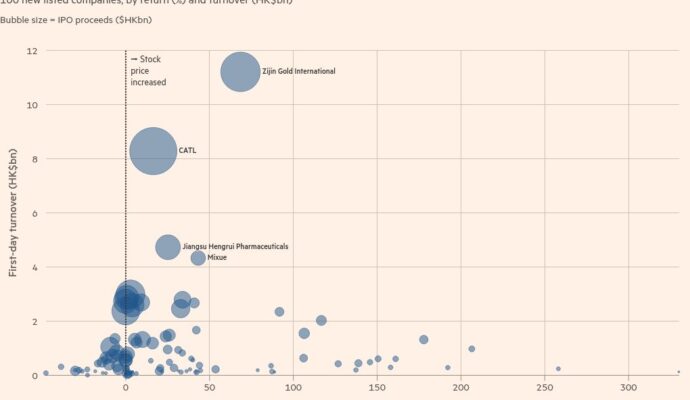Unlock the Editor’s Digest for free
Roula Khalaf, Editor of the FT, selects her favourite stories in this weekly newsletter.
Bargain ecommerce platform Temu has resumed shipping goods from Chinese factories directly to US consumers and increased its advertising spending in the country, following a trade truce between Washington and Beijing.
Multiple Temu suppliers, partners and investors said the company had restored so-called fully managed shipments — where it handles most of the logistics and customs formalities on behalf of suppliers — in July. It had suspended the service in May.
The group, owned by Shanghai-based PDD Holdings, has also boosted spending on US advertising after earlier slashing marketing budgets amid President Donald Trump’s trade salvos, according to two people familiar with the move and data analytics provider Smarter Ecommerce.
One of the people said Temu expected ad spend to return to first-quarter levels, before Trump unveiled his sweeping tariffs.
The resumption of direct shipments underlines how a US-China trade truce has given a reprieve to low-value goods exporters.
In April, Trump announced plans to cancel so-called de minimis exemptions for shipments worth less than $800 from China, subjecting them to duties of more than 100 per cent.
The move especially hit Temu, which owes part of its explosive growth to being able to ship billions of dollars of low-value packages tax-free. After Trump’s executive order, the company said it would source all American orders from US suppliers.
Talks between the US and China in May led to Washington agreeing to slash extra tariffs on Chinese goods to 30 per cent for 90 days. The US also reduced the rate for small packages from China to 54 per cent, although the actual rate can vary depending on how shippers choose to send goods.
The two sides extended the truce for another 90 days this month.
The US has also said it will cancel de minimis exemptions for every country from August 29, meaning all low-cost parcels will be subject to tariffs. Last year, US Customs and Border Protection processed 1.3bn de minimis packages, worth $64.6bn.
“Because of across-the-board tariff increases . . . even regular brands and retailers have to increase their price substantially,” said Sheng Lu, a fashion industry professor at the University of Delaware. “This will reduce the price pressure facing Temu and Shein.”
Even with current levies on Chinese goods, direct shipments are still more cost-effective than maintaining warehouses and inventory in the US, said Lu. “It’s still regarded as workable for companies like Temu.”
A person familiar with Temu’s operations said the company had also observed how rival Shein, which has a subsidiary to handle cross-border logistics including customs clearing, was able to increase revenue and remain profitable in the US after Trump cancelled the de minimis exemption.
Temu has since built up its own logistical capabilities, rather than relying on third parties, which would have exposed the company to the risk of more stringent customs checks, the person said.
A Temu supplier based in the eastern province of Zhejiang said the resumption of direct shipping to the US “has added to our exposure and increased our sales”.
However, a seller based in the southern province of Guizhou said sales were not as strong as before the Trump tariffs.
“Previously, the US accounted for about one-third of sales,” said the seller. “It’s just recovering slowly.”
Temu declined to comment.

